I've been visiting this place over two years, and since they changed the manager they have fallen down, there are just a few good counselors, but the rest of them are very rude and treat the patients as if they were criminals who don't deserve any help., it seems that they j ...
About Greenville Metro Treatment Center
Greenville Metro Treatment Center guides individuals and families facing opioid use issues toward a journey of lasting healing. They offer medication assisted treatment, medically supervised withdrawal and behavioral therapy in a convenient outpatient setting. They accept Medicaid, Medicare and private insurance to keep costs low and recovery more accessible. This clinic is situated near Greenville Downtown Airport in Greenville, South Carolina. They also serve people from the surrounding cities of Five Forks, Magnolia Acres and Conestee.
At this clinic, you can expect to receive quality care from a team of friendly professionals who respect your dignity. You’ll work with these experts to create a custom care plan that guides your recovery following a detailed intake assessment that includes medical and physical examination. I was impressed to see the high level of confidentiality that this clinic maintains.
Medically Supervised Withdrawal in Greenville
Medically supervised withdrawal lets your body rid itself of opioids while medical professionals help you manage the symptoms and monitor your health. During the process, you’ll be monitored 24/7 by trained physicians or clinicians. These experts may administer FDA approved meds and offer counseling to help you better handle withdrawal symptoms. They strive to ensure that withdrawal is safe and comfy.
Medication Supported Recovery With Take-Home Dosing
After medically supervised withdrawals, you may wish to continue your recovery via medication assisted treatment or MAT. This is a long term maintenance treatment aimed at abstinence. MAT pairs specialized medications for opioid or alcohol dependency with counseling to facilitate lasting healing or recovery. Greenville Metro Treatment Center may offer methadone, buprenorphine or Suboxone for their MAT depending on your tailored care. These meds alleviate painful withdrawal symptoms and curb cravings.
They also offer individual and group counseling to help you take care of underlying psychological issues, build strong coping skills and prevent relapses. Family counseling is provided here as well to strengthen your support network. The cool thing about their MAT program is that they offer take-home dosing for eligible patients. This enhances flexibility since you won’t have to visit the clinic often for dosing. It also eases travel burden, saves time and enables you to focus on other activities that help your healing journey.
The care team can refer or link you to community resources that encourage sustained recovery. This may include job opportunities, housing and medical care. They can link you to self help groups like AA/NA as well.
Latest Reviews
Rehab Score
Gallery
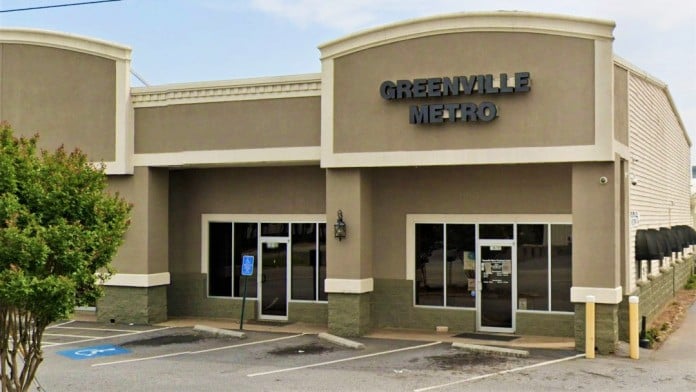
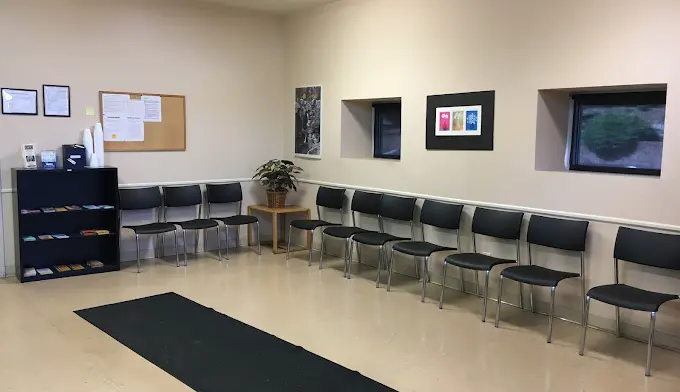
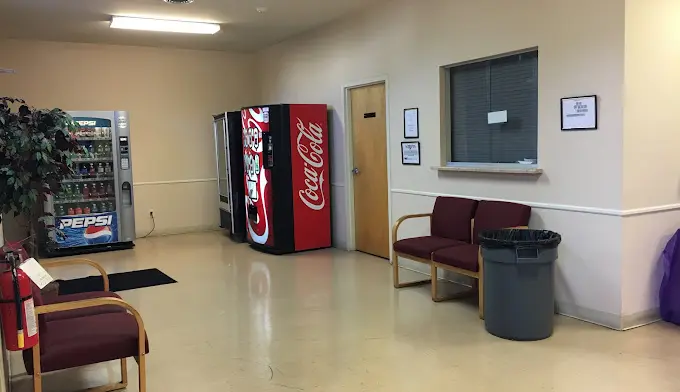
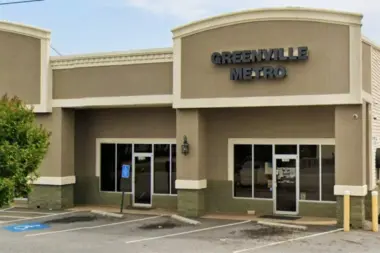
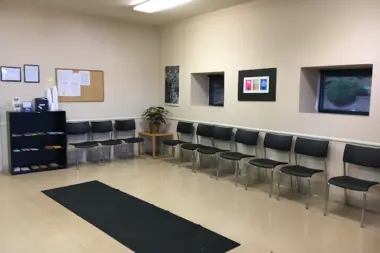
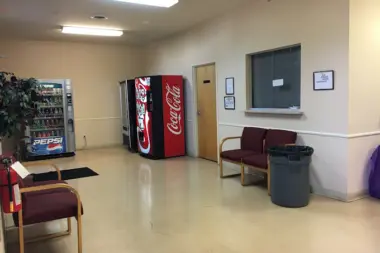
Accepted Insurance
Other Forms of Payment
Private insurance refers to any kind of healthcare coverage that isn't from the state or federal government. This includes individual and family plans offered by an employer or purchased from the Insurance Marketplace. Every plan will have different requirements and out of pocket costs so be sure to get the full details before you start treatment.
Medicare is a federal program that provides health insurance for those 65 and older. It also serves people under 65 with chronic and disabling health challenges. To use Medicare for addiction treatment you need to find a program that accepts Medicare and is in network with your plan. Out of pocket costs and preauthorization requirements vary, so always check with your provider.
Medicaid is a state based program that helps lower-income individuals and families pay for healthcare. Medicaid covers addiction treatment so those enrolled can use their coverage to pay for rehab. When a program accepts Medicaid the client often pays very little or nothing out of their own pocket.
Self-pay involves paying for treatment out of your own pocket. You can use savings or credit, get a personal loan, or receive help from family and friends to fund your treatment. If you don't have insurance or your insurance plan doesn't cover a specific program, self-pay can help ensure you still get the care you need.
Addiction Treatments
Levels of Care
Outpatient Programs (OP) are for those seeking mental rehab or drug rehab, but who also stay at home every night. The main difference between outpatient treatment (OP) and intensive outpatient treatment (IOP) lies in the amount of hours the patient spends at the facility. Most of the time an outpatient program is designed for someone who has completed an inpatient stay and is looking to continue their growth in recovery. Outpatient is not meant to be the starting point, it is commonly referred to as aftercare.
Clients undergoing treatment in an intensive outpatient program (IOP) remain in or return to their homes following detox and/or inpatient rehab. They engage in multiple, extended treatment sessions weekly, with most intensive outpatient rehabs requiring between nine and 20 therapeutic hours per week. These programs are ideal for clients in early recovery and those at an elevated risk of relapse and typically combine counseling, recovery education, holistic care, and medication assisted treatment (MAT).
Drug and alcohol addiction often takes a heavy toll on one's body. Over time, a physical dependence can develop, meaning the body physiologically needs the substance to function. Detox is the process of removing drugs and/or alcohol from the body, a process that can be lethal if mismanaged. Medical detox is done by licensed medical professionals who monitor vital signs and keep you safe, healthy, and as comfortable as possible as you go through detox and withdrawal.
Treatments
The goal of treatment for alcoholism is abstinence. Those with poor social support, poor motivation, or psychiatric disorders tend to relapse within a few years of treatment. For these people, success is measured by longer periods of abstinence, reduced use of alcohol, better health, and improved social functioning. Recovery and Maintenance are usually based on 12 step programs and AA meetings.
Choosing a drug rehab in South Carolina helps you overcome drug dependency, learn how to manage cravings, and obtain the tools needed to prevent relapse. This is accomplished through individualized treatment that addresses a full spectrum of physical, social, and emotional needs.
Opioid rehabs specialize in supporting those recovering from opioid addiction. They treat those suffering from addiction to illegal opioids like heroin, as well as prescription drugs like oxycodone. These centers typically combine both physical as well as mental and emotional support to help stop addiction. Physical support often includes medical detox and subsequent medical support (including medication), and mental support includes in-depth therapy to address the underlying causes of addiction.
Substance rehabs focus on helping individuals recover from substance abuse, including alcohol and drug addiction (both illegal and prescription drugs). They often include the opportunity to engage in both individual as well as group therapy.
Programs
Adult rehab programs include therapies tailored to each client's specific needs, goals, and recovery progress. They are tailored to the specific challenges adult clients may face, including family and work pressures and commitments. From inpatient and residential treatment to various levels of outpatient services, there are many options available. Some facilities also help adults work through co-occurring conditions, like anxiety, that can accompany addiction.
Young adulthood can be an exciting, yet difficult, time of transition. Individuals in their late teens to mid-20s face unique stressors related to school, jobs, families, and social circles, which can lead to a rise in substance use. Rehab centers with dedicated young adult programs will include activities and amenities that cater to this age group, with an emphasis on specialized counseling, peer socialization, and ongoing aftercare.
Clinical Services
Research clearly demonstrates that recovery is far more successful and sustainable when loved ones like family members participate in rehab and substance abuse treatment. Genetic factors may be at play when it comes to drug and alcohol addiction, as well as mental health issues. Family dynamics often play a critical role in addiction triggers, and if properly educated, family members can be a strong source of support when it comes to rehabilitation.
Group therapy is any therapeutic work that happens in a group (not one-on-one). There are a number of different group therapy modalities, including support groups, experiential therapy, psycho-education, and more. Group therapy involves treatment as well as processing interaction between group members.
In individual therapy, a patient meets one-on-one with a trained psychologist or counselor. Therapy is a pivotal part of effective substance abuse treatment, as it often covers root causes of addiction, including challenges faced by the patient in their social, family, and work/school life.
Accreditations

The Commission on Accreditation of Rehabilitation Facilities (CARF) is a non-profit organization that specifically accredits rehab organizations. Founded in 1966, CARF's, mission is to help service providers like rehab facilities maintain high standards of care.
CARF Accreditation: Yes

The Substance Abuse and Mental Health Services Administration (SAMHSA) is a branch of the U.S. Department of Health and Human Services. Established in 1992 by congress, SAMHSA's mission is to reduce the impact of substance abuse and mental illness on American's communities.
SAMHSA Listed: Yes
Contact Information
602 Airport Road
Suite C
Greenville, SC 29607



